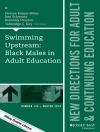This edited book addresses a range of aspects of internationalization in vocational education and training (VET) in different countries. It considers the impact of internationalization and student mobility on VET at the sectoral, institutional and individual levels as the sector emerges as a key tool for social and structural change in developing nations and as a flexible and entrepreneurial means of growth in developed nations. The book explores not only the effects of the neo-liberal market principle underpinning VET practices and reforms, but importantly considers internationalization as a powerful force for change in vocational education and training. As the first volume in the world that examines internationalization practices in VET, the book provides VET and international education policymakers, practitioners, researchers and educators with both conceptual knowledge and practical insights into the implementation of internationalization in VET.
İçerik tablosu
1 Internationalization in VET: An Overview.- Part 1. Internationalization and its Impact on VET.- 2 The U.S. community college after globalization.- 3 International student mobility and its impact on the Australian private VET sector.- 4 Internationalization in European VET.- 5 Teacher professional development under the impact of internationalization in VET.- 6 International students and further education colleges in England: The context, policy tensions, and some aspects of practice.- Part 2. VET Transfer and Appropriation.- 7 Management of knowledge in international VET: Diversity of practice from Laos, Kuwait and China.- 8 Adapting international influences and retaining ‘Vietnamese character’ in VET in Vietnam.- 9 Australian VET in China – what has changed?.- 10 Korea’s Vocational Education Training sector in a globalized world: Current practices and future plans.- 11 Policy lender and borrower at once: Korea’s developments in the VET sector and its new pathway to apprenticeship.- Part 3. Extending the VET Boundaries.- 12 Internationalization in Senior Secondary Vocational Education in the Netherlands.- 13 English instruction at community colleges: The language bridge to the U.S..- Part 4. Conclusion.- 14 Internationalization with VET character: Key emerging issues.
Yazar hakkında
Ly Thi Tran is a Senior Lecturer at the School of Education, Deakin University, Australia and an Australian Research Council DECRA (Discovery Early Career Researcher Award) fellow. Ly’s research and publications focus on international students, student mobility, international vocational education and training, pedagogy and curriculum in international education and Vietnamese higher education. She has been awarded three grants for research on international student mobility and staff professional development in international education by the Australian Research Council. Her book ‘Teaching international students in vocational education: New pedagogical approaches’ won the 2014 International Education Association of Australia’s Excellence Award for Best Practice/Innovation in International Education.
Kate Dempsey is an organisational consultant who has operated her own business, Kate Dempsey & Associates, for 29 years. She assists businesses with change management and organisational review. In addition to her consulting work, Kate is an academic who has taught Leadership and Managing Change to Master’s level students and to Bachelor of Business students. She currently teaches in the Latrobe online MBA course. She is a Research Fellow at Deakin University, specialising in research on educational internalisation. She was Executive Officer for an association of public Vocational Education and Training institutions in Australia from 2008 to 2015, where she prepared more than 18 research and best practice documents on international vocational education and training.












